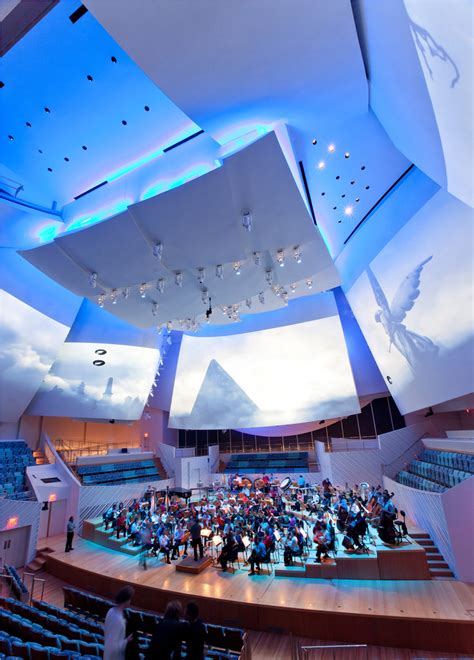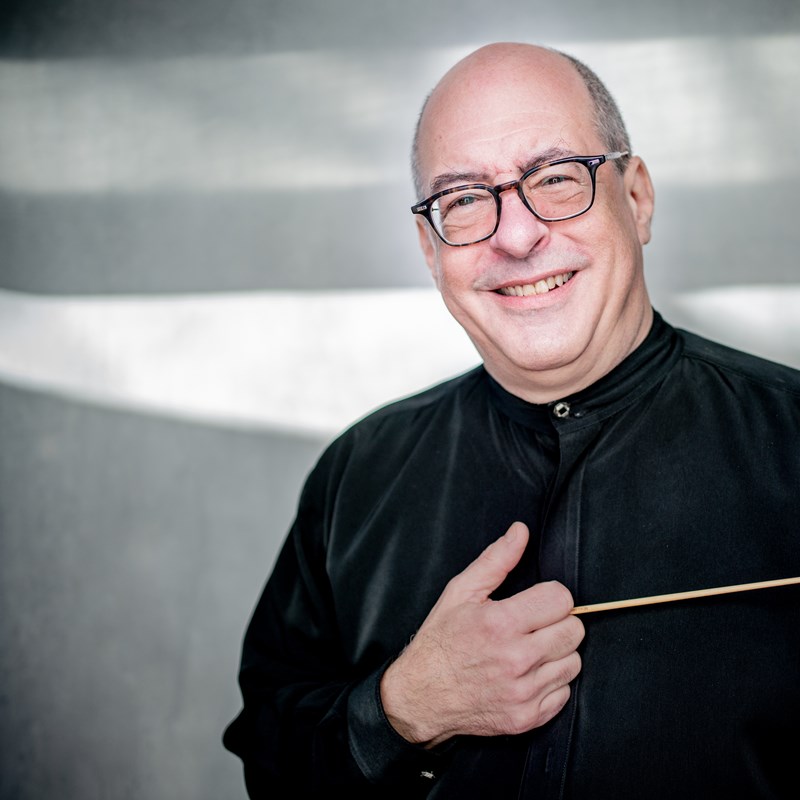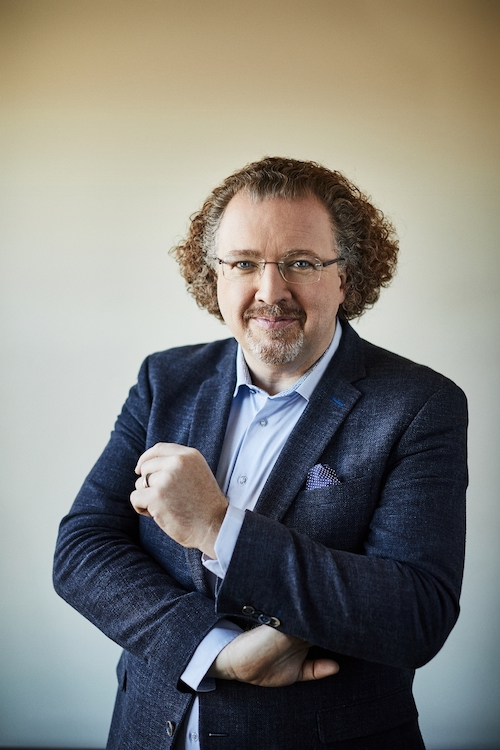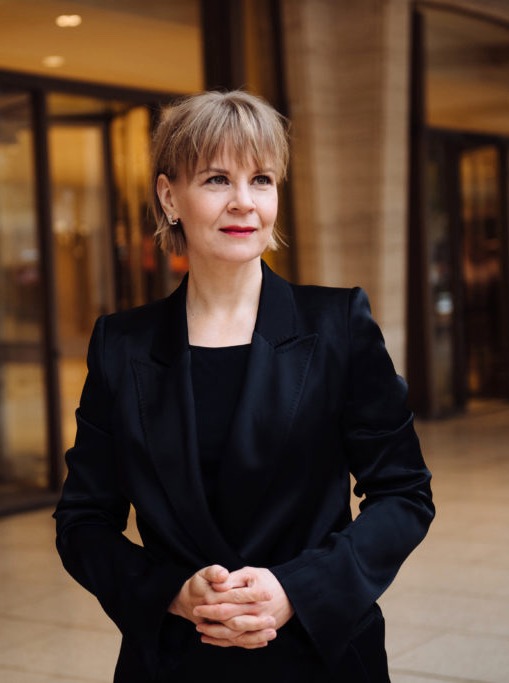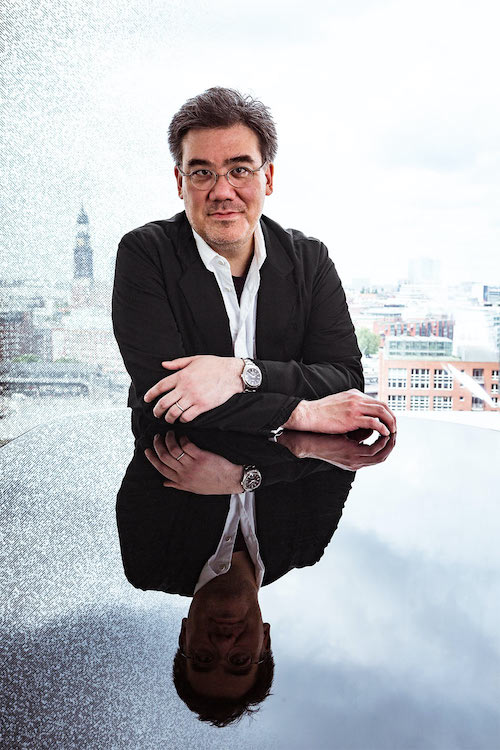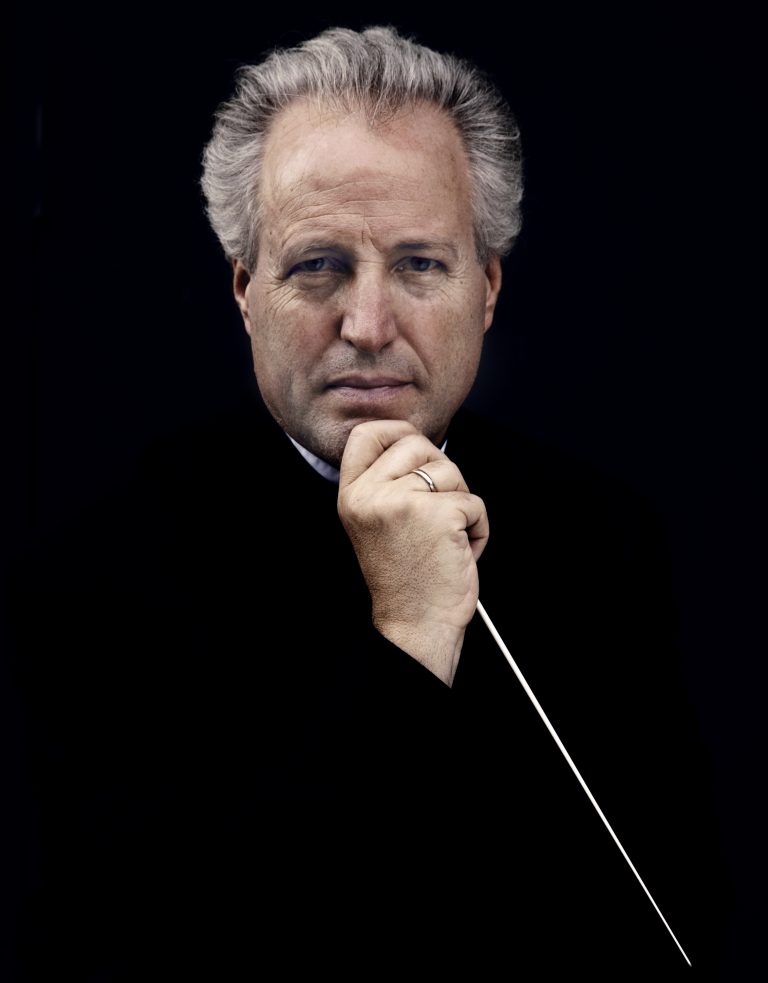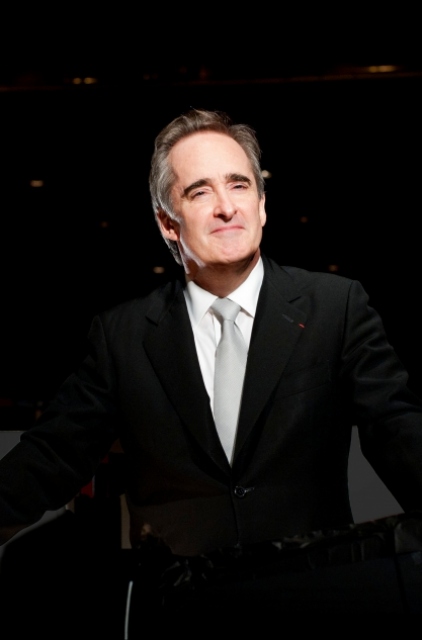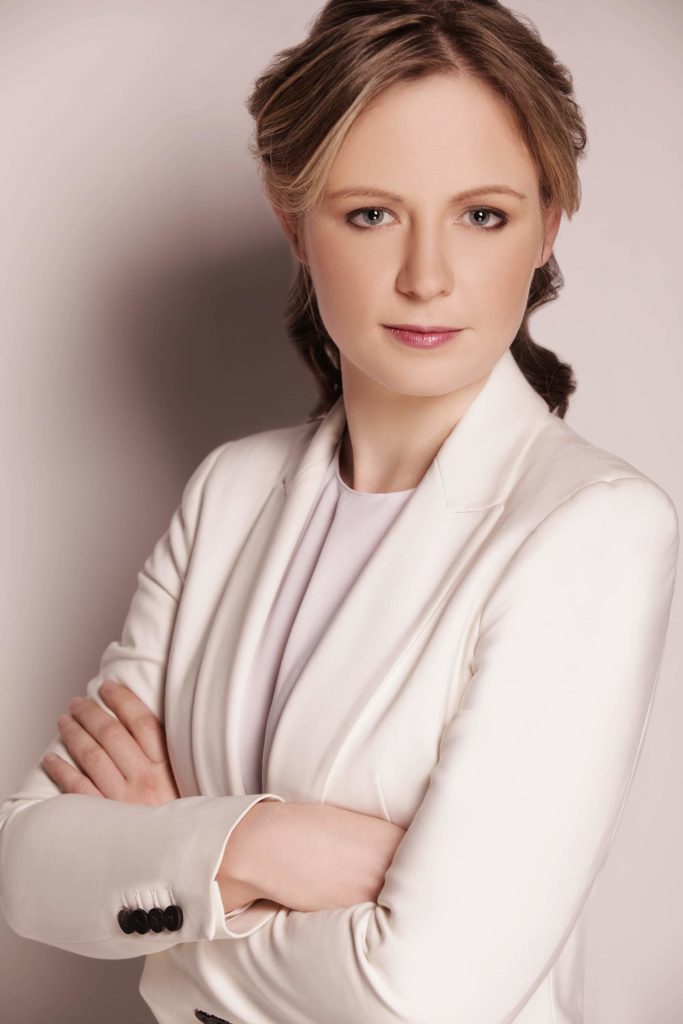Who should be the next conductor of the New World Symphony?
The March announcement by Michael Tilson Thomas that he is retiring as artistic director of the New World Symphony due to complications from an aggressive form of brain cancer marks the end of an era.
From that first night in February, 1988 when the Miami Beach orchestral academy made its concert debut, Tilson Thomas has been its guiding spirit. As creator and co-founder (with cruise magnate Ted Arison), educator, program coordinator and most prominent podium presence, Tilson Thomas’s vision has influenced the lives and careers of the 1,200 fellows who have passed through the NWS program and brought memorable music -making to South Florida concertgoers.
His far-sighted agenda for the organization reached its zenith with the opening of the New World Center in 2011. Designed by famed architect Frank Gehry, the educational complex spotlights a state-of-the-art, 756-seat concert hall with pathbreaking video facilities, plus classrooms, rehearsal halls, a recording studio and a rooftop space for social functions with stunning views of South Beach and the Atlantic Ocean.
The legacy that Tilson Thomas and colleagues have given the entire music world and South Florida must continue to be maintained at the highest level. In his resignation letter, he speaks of continuing to work with NWS fellows on projects he cares deeply about, which will hopefully continue in his new role as artistic director laureate.
Still, whatever the future may hold regarding Tilson Thomas’s continuing relationship with the organization, the time has come to look to the future.
___________
While there may be a great temptation to appoint an immediate successor to Tilson Thomas as artistic director, the New World management and board should resist that impulse. Two or three seasons of guest conductors who are potential candidates would be helpful in evaluating the artists’ interaction and chemistry with the players, their teaching ability and view of the organization’s future path.
It is far more important that the ultimate decision be the right one rather than a fast, ill-considered appointment. Perhaps a veteran conductor like David Zinman, Leonard Slatkin or David Robertson could be brought on board as artistic advisor to ensure consistent and solid programming, tackle special projects, and lead one or two concerts.
Another inclination that must be avoided is the appointment of one of the academy’s former conducting fellows as Tilson Thomas’ successor. While appointing a New World alum might make for a great PR campaign, it would not be in the organization’s best interest. Although many of those young conductors are gifted, none at this point in their careers has the experience, vast repertoire and authoritative command to guide and plan the artistic agenda for this important educational institution.
It is impossible to clone Michael Tilson Thomas. He came from a previous generation of conductors, exemplified by his mentor Leonard Bernstein, who led a huge and diverse array of symphonic literature that ranged from the Baroque era to the most recent contemporary creations. Today many conductors tend to specialize in distinct areas of the repertoire while occasionally branching out to include works from other eras in their programming.
Therefore, it may be a good idea for the NWS to adopt a two-conductor model, as many orchestras have done. The artistic director would set the academy’s goals, plan the overall season and be the main podium and public face for the orchestra. A principal guest conductor could provide stability in the artistic director’s absence and bring his own repertoire to the fore, offering genuine musical diversity for the audience.
Here then are five suggested possibilities for the directorship (the last two less likely than the others) and three for major guest status.
ARTISTIC DIRECTOR
Robert Spano
A veteran educator, advocate for American composers and artistic director of American orchestras and festivals, Spano checks all the boxes for the position. He has been a frequent New World guest, delivering consistently strong concerts. Spano, 61, is approaching the late phase of his career. On the plus side, he brings a wealth of experience as both conductor and pianist and enjoys working with young people. During his two-decade tenure as music director of the Atlanta Symphony, he turned an already fine ensemble into one of America’s top regional orchestras. Spano has recently begun a new position as conductor of the Fort Worth Symphony. That regional orchestra maintains a less-active concert schedule than what Spano was used to in Atlanta, which would give him ample time for the New World position.
Spano is a veteran educator. Since 1989 he has been closely associated with Ohio’s Oberlin Conservatory, as both faculty member and guest instructor. In the early 2000’s he ran the conducting program each summer at the Tanglewood Music Center. Significantly, Spano has been music director of the Aspen Music Festival and School. Many New World fellows play and study at the summer festival and the NWS has given scholarships to promising high school students for summer study at the Aspen campus. Spano’s presence at the New World Center would make that relationship official.
Spano conducts a fairly broad repertoire. His performances of big romantic showpiece are expertly conceived. There are two area of programming that have been lacking in recent seasons, however, where Spano can bring something special–major choral-vocal works. Miami audiences and the NWS musicians need the experience of preparing, playing and hearing such masterpieces as Beethoven’s Missa Solemnis and Verdi’s Requiem (which have not been heard locally since the demise of the Florida Philharmonic almost two decades ago). Spano may be the maestro to bring those works to life.
Going back to the late 1980’s when he was conductor of the defunct Brooklyn Philharmonic, Spano has been a passionate champion of American music. The New World’s Sounds of the Times series has become increasingly Eurocentric during the past few years. It is only appropriate that America’s orchestral academy give pride of place to American composers of the past and present. Perhaps the series can be rechristened “American Voices” and Spano put in charge, even if he is not artistic director. He is one of America’s finest conductors and should play a continuing role in the ensemble’s future.
Stéphane Denève
The French conductor has been a frequent NWS guest and always has produced outstanding concerts. After music directorships in Scotland and Germany, Denève is currently music director of the St. Louis Symphony and will become principal guest conductor of the Netherlands Radio Philharmonic in 2023. At 51, he is in mid-career and his musical prime. Denève’s conducting is distinguished by lucidity and transparency of instrumental textures and finely gauged dynamics. While he is a natural specialist in French music, his repertoire and stylistic palette is wide-ranging. His most recent NWS appearance featured excellent performances of scores by Haydn and Beethoven as well as Gallic fare. A 2016 tour concert by the Philadelphia Orchestra found Denève delivering idiomatic Mendelssohn, Tchaikovsky and Prokofiev. His St. Louis programming shows a keen interest in American music.
Denève appears to have great rapport with the New World fellows. At his March concert at downtown Miami’s Arsht Center, the players applauded him every time he came on stage and that enthusiasm was reflected in the rich sonority and razor-sharp precision of the music making.
If Denève is not the group’s next artistic director, he should be made principal guest conductor. His superb musicianship and high artistic standards are too valuable to the organization to be heard only on a sporadic basis. Three weeks of Denève each season would be a boon for concertgoers but a larger commitment would be even more beneficial for players and audiences alike.
Susanna Mӓlkki
The Finnish conductor Susanna Mӓlkki, 53, is in her artistic prime. Currently principal guest conductor of the Los Angeles Philharmonic, she has been prominently mentioned for podium openings with the New York Philharmonic and Chicago Symphony Orchestra. If Los Angeles’ high-flying music director Gustavo Dudamel takes the New York position, Mӓlkki may take the reins in LA.
Either way, her presence at New World would be exciting and her appointment would be a bold, forward-looking move. Mӓlkki’s Miami appearances have been first-class. From her NWS debut in 2010, she has led consistently superb concerts with New World, including an exciting reading of Rachmaninoff’s Symphonic Dances in 2016, drawing a higher level of orchestral playing than even Tilson Thomas sometimes achieved. This past October, taking over a program from the ailing Tilson Thomas, Mӓlkki led a Sibelius Second Symphony that was nothing short of sensational. She made one of the composer’s most familiar, over-played works sound fresh and recharged. Avoiding exaggerated musical histrionics, her rapt attention to detail and balance, surging momentum and perfect combination of lyricism and energy made the listener feel like one was experiencing the work for the first time.
The former artistic director of Paris’ renowned Ensemble InterContemporain, Mӓlkki is an expert on contemporary music and programs it regularly. (Her New World debut featured Lutoslawski’s Cello Concerto with Anssi Karttunen). While most of those scores have been by European composers, one could well imagine Mӓlkki immersing herself in American repertoire. She projects authority on the podium and draws high-octane performances from every orchestra she leads. New World leadership should seriously consider a role for Mӓlkki in the orchestra’s future.
Paavo Jӓrvi
The Estonian-American conductor Paavo Jӓrvi, 59, is part of a musical dynasty. His father Neeme Jӓrvi is a renowned conductor while his brother Kristjan is also a conductor and his sister Maarika is a flutist. Paavo Jӓrvi guested with NWS twice during the decade when he was music director of the Cincinnati Symphony, lastly in 2005. Both of those appearances were memorable. His version of Sibelius’ Symphony No. 5 proved taut and muscular and he captured both the wit and cynicism, modernism and darkness of Carl Nielsen’s Symphony No. 6.
For the last decade, Jӓrvi’s career has been centered abroad with appointments in Frankfurt, Tokyo and Zurich. Like his father Jӓrvi’s repertoire encompasses much rarely played music. His recording of the four symphonies of Franz Schmidt won the 2021 Gramophone award for best orchestral recording. He could bring some of adventurous repertoire choices to Miami Beach. In any case, Jӓrvi should return as a guest conductor. If sparks fly, maybe in a more formal position.
Alan Gilbert
The American-born former music director of the New York Philharmonic Alan Gilbert has never conducted the New World Symphony but that can be easily remedied. Gilbert, 55, commands a huge repertoire and is a champion of contemporary composers from both sides of the pond and beyond. His New York tenure was rocky but that ensemble has always been a difficult venue for conductors. (Perhaps only the late Kurt Masur was successful as music director since the legendary reign of Leonard Bernstein in the 1950’s and 60’s.) Even so, Gilbert’s recordings with the NY Phil of the complete symphonies and concertos of Nielsen were highly lauded.
Recent video streaming of concerts from Tanglewood revealed Gilbert as a far more assured and authoritative conductor than he was a decade ago. He is also a great communicator who speaks intelligently about music to his audience. Can Gilbert work well with the orchestral academy’s fellows? The only way to find out is to bring him in and see if the performances catch fire. If not, he would not be the first NWS guest to fail the test.
PRINCIPAL GUEST CONDUCTOR
Manfred Honeck
The Austrian music director of the Pittsburgh Symphony Orchestra is an expert interpreter and purveyor of the Central European core repertoire. His three New World appearances produced great concerts. An area of the repertoire where NWS programming has been weak encompasses the symphonies of Haydn and Bruckner which are Honeck specialties. His 2006 performance of Bruckner’s Seventh Symphony was magnificent. He managed to achieve a huge dynamic range in the acoustically challenged Lincoln Theater, the orchestra’s former home. Three weeks of Honeck each season would be a treat.
James Conlon
James Conlon has been an irregular guest at New World but his concerts have been consistently excellent. Long one of America’s top podium talents, Conlon often programs offbeat repertoire like Shostakovich’s much maligned Symphony No. 12 or the music of Alexander von Zemlinsky. His readings of more standard fare are also vibrant and alert. He should be heard in Miami more often than every three or four seasons.
Gemma New
The New Zealand-born Gemma New made her NWS debut in February, substituting for Tilson Thomas, leading Berg’s Violin Concerto and Beethoven’s Symphony No. 3 (“Eroica”). The results were not merely good; they were terrific. Her seamless collaboration with Christian Tetzlaff revealed the fin-de-siecle Viennese score in all its late romantic veering toward modernist glory. New’s reading of the “Eroica” was superbly played, freshly minted and replete with subtlety—a genuinely great performance. One wants to hear more of this greatly gifted conductor on a regular basis.
___________
The choice of new directorship and new directions for the New World Symphony goes beyond Miami in its impact. Today the academy’s alums populate orchestras and chamber ensembles around the globe. The group’s next artistic director will wield influence across the entire musical world. That is why the decision about Tilson Thomas’ successor must be made carefully with artistic excellence as the dominant component. The future of one of Miami’s greatest cultural assets hangs in the balance.
Lawrence Budmen attended the New World Symphony’s first concert in February 1988 and nearly all since then. He has been the Miami critic for South Florida Classical Review since 2009.
Posted in Articles
Leave a Comment
Tue Jun 14, 2022
at 11:50 am
No Comments
